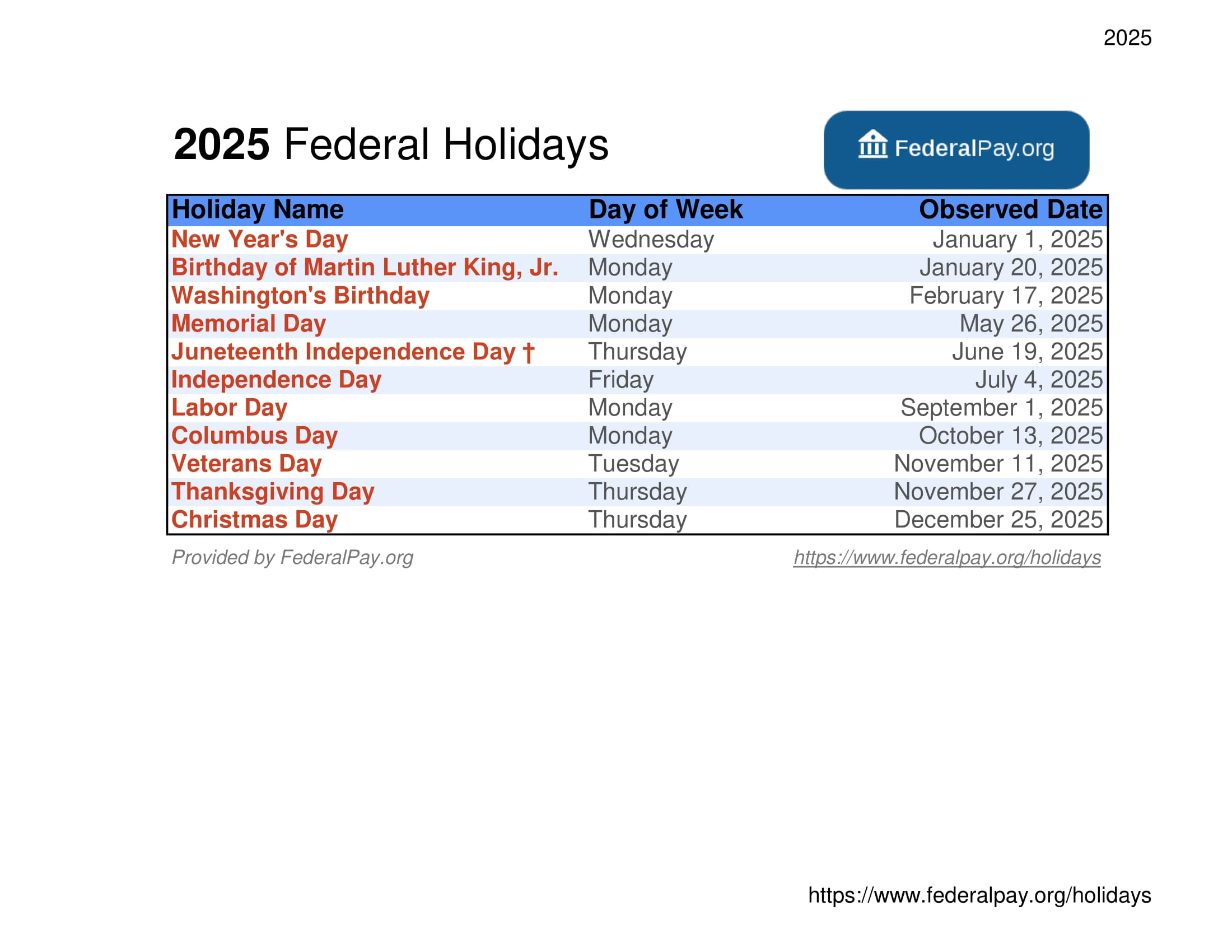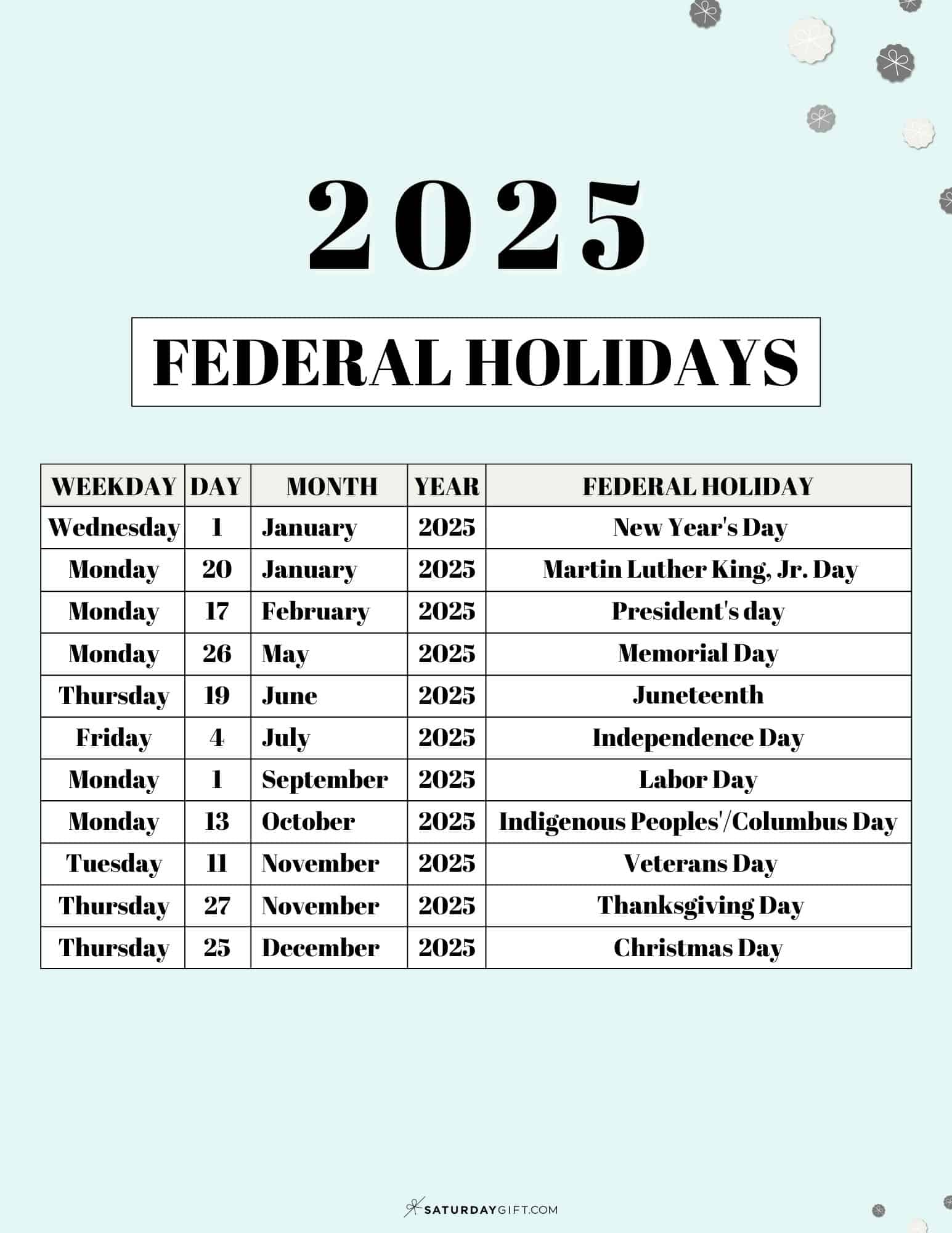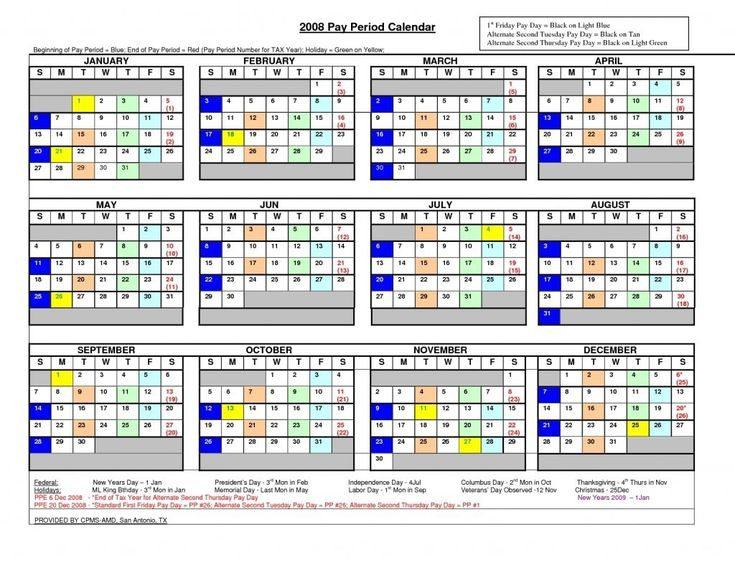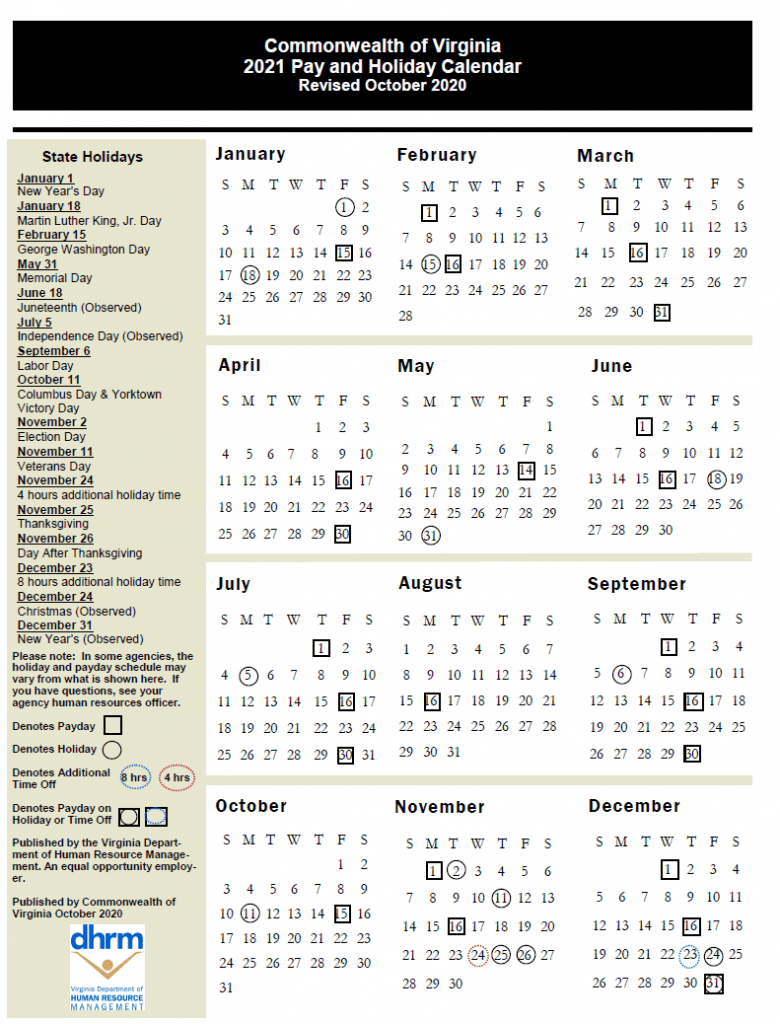Navigating Federal Paid Holidays in 2025: A Comprehensive Guide
Related Articles: Navigating Federal Paid Holidays in 2025: A Comprehensive Guide
Introduction
In this auspicious occasion, we are delighted to delve into the intriguing topic related to Navigating Federal Paid Holidays in 2025: A Comprehensive Guide. Let’s weave interesting information and offer fresh perspectives to the readers.
Table of Content
Navigating Federal Paid Holidays in 2025: A Comprehensive Guide

Federal paid holidays are a cornerstone of the American workforce, providing employees with designated time off to observe significant cultural and historical events. Understanding these holidays is crucial for both employers and employees, ensuring compliance with federal regulations and promoting a healthy work-life balance. This comprehensive guide delves into the federal paid holidays scheduled for 2025, providing clarity on their significance, benefits, and practical implications.
A Calendar of Observance:
The federal government officially recognizes ten paid holidays in 2025:
- New Year’s Day: January 1st (Observed: January 1st)
- Martin Luther King Jr. Day: Third Monday in January (January 20th)
- Washington’s Birthday (Presidents’ Day): Third Monday in February (February 17th)
- Memorial Day: Last Monday in May (May 26th)
- Independence Day: July 4th (Observed: July 4th)
- Labor Day: First Monday in September (September 2nd)
- Columbus Day: Second Monday in October (October 13th)
- Veterans Day: November 11th (Observed: November 11th)
- Thanksgiving Day: Fourth Thursday in November (November 28th)
- Christmas Day: December 25th (Observed: December 25th)
Understanding the Significance:
These holidays are more than just days off; they represent a tapestry of American history, culture, and values.
- New Year’s Day: Marks the beginning of a new year, a time for reflection and new beginnings.
- Martin Luther King Jr. Day: Celebrates the life and legacy of Dr. Martin Luther King Jr., a pivotal figure in the Civil Rights Movement.
- Washington’s Birthday (Presidents’ Day): Honors the birth of George Washington, the first President of the United States, and recognizes the contributions of all past presidents.
- Memorial Day: Pays tribute to the men and women who died while serving in the United States Armed Forces.
- Independence Day: Celebrates the signing of the Declaration of Independence, marking the birth of the United States as an independent nation.
- Labor Day: Honors the contributions of workers and the labor movement in the United States.
- Columbus Day: Commemorates the arrival of Christopher Columbus in the Americas, although its historical accuracy and cultural impact are increasingly debated.
- Veterans Day: Honors all veterans who have served in the United States Armed Forces.
- Thanksgiving Day: A time for gratitude and celebration of the harvest, traditionally marked by family gatherings and feasts.
- Christmas Day: Celebrates the birth of Jesus Christ, a significant holiday for Christians worldwide.
Benefits of Federal Paid Holidays:
Federal paid holidays offer numerous benefits for both employees and employers:
- Enhanced Work-Life Balance: Provides employees with designated time off to recharge and spend time with loved ones, promoting a healthier work-life balance.
- Improved Employee Morale: Recognizing and celebrating these holidays fosters a positive work environment and increases employee morale.
- Increased Productivity: Returning from a holiday refreshed can lead to increased productivity and focus.
- Cultural Awareness: Encourages employees to learn about and appreciate the cultural and historical significance of these holidays.
- Compliance with Federal Regulations: Employers are legally obligated to provide employees with paid time off for these federal holidays.
Practical Implications:
- Scheduling Considerations: Employers need to plan and adjust work schedules to accommodate these holidays, ensuring essential operations continue.
- Pay and Leave Policies: Employers should clearly define their policies regarding pay and leave for federal holidays, ensuring transparency and consistency.
- Communication and Notice: Effective communication is key to informing employees about holiday schedules, leave policies, and any adjustments to work arrangements.
- Observance of Different Faiths: Employers should be mindful of employees who observe different religious holidays and accommodate their needs where possible.
Frequently Asked Questions:
1. What happens if a federal holiday falls on a weekend?
In most cases, if a federal holiday falls on a weekend, it is not observed on another day. However, some states may choose to observe the holiday on a different day, such as a Friday or Monday, to create a longer weekend.
2. Are federal employees required to take all federal holidays off?
Federal employees are typically entitled to paid leave on federal holidays, but they may be required to work on certain holidays depending on their job duties and agency requirements.
3. Are private sector employees entitled to federal holidays?
Private sector employers are not legally required to provide employees with paid time off for federal holidays. However, many private sector employers choose to offer paid holidays as a benefit to attract and retain employees.
4. What if my employer doesn’t recognize a federal holiday?
If your employer does not recognize a federal holiday, it is important to consult your employment contract or employee handbook to understand your rights and obligations.
5. How can I request time off for a religious holiday that is not a federal holiday?
Employees have the right to request reasonable accommodations for their religious beliefs, including time off for religious holidays. It is important to communicate your request to your employer in a timely manner and provide any necessary documentation.
Tips for Employers and Employees:
- Clear Communication: Employers should clearly communicate their holiday policies and expectations to employees, ensuring transparency and understanding.
- Flexible Scheduling: Consider offering flexible work arrangements, such as remote work options or adjusted schedules, to accommodate employee needs during holiday periods.
- Employee Recognition: Acknowledge and celebrate federal holidays through company-wide events or small gestures, fostering a sense of community and appreciation.
- Respect for Diversity: Be mindful of employees who observe different religious holidays and accommodate their needs where possible.
Conclusion:
Federal paid holidays play a vital role in the American workforce, fostering a healthy work-life balance, promoting cultural awareness, and strengthening employee morale. Understanding these holidays, their significance, and their practical implications is crucial for both employers and employees. By embracing these holidays and their underlying values, we can create a more engaged, productive, and culturally diverse workplace environment.








Closure
Thus, we hope this article has provided valuable insights into Navigating Federal Paid Holidays in 2025: A Comprehensive Guide. We appreciate your attention to our article. See you in our next article!
